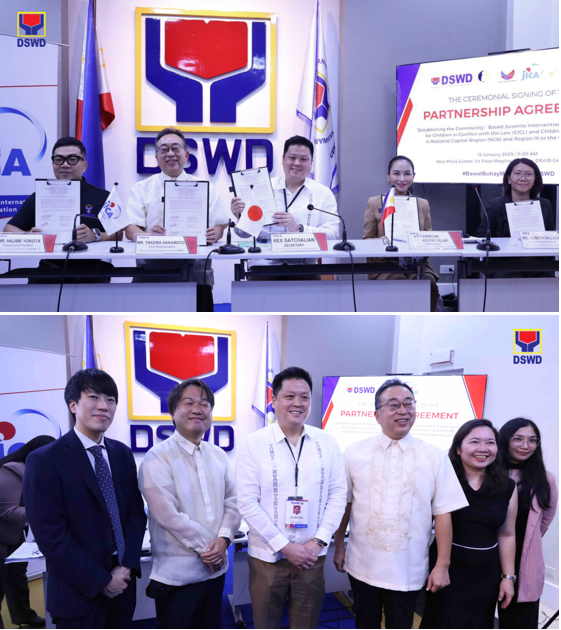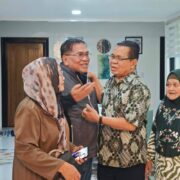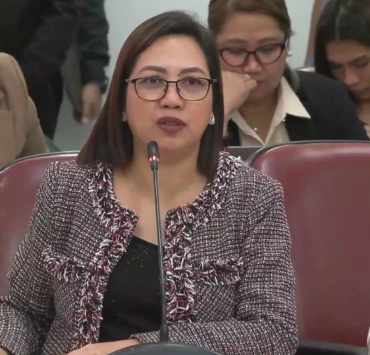DSWD, JICA collaborate on community-based diversion programs for juvenile offenders

The Department of Social Welfare and Development (DSWD) is collaborating with the Japan International Cooperation Agency (JICA) to aid local governments with no mandated community-based diversion programs for juvenile offenders in crafting their own policies.
The DSWD signed on Wednesday a partnership agreement with JICA chief representative Takema Sakamoto and Hajime Yokota, president of the nonprofit group, A Child’s Trust is Ours to Nurture (ACTION) Inc.
Social Welfare Undersecretary Emmeline Villar, who was in attendance at the signing, noted that many local government units (LGUs) still do not have their own intervention programs for children who are in conflict with the law (CICL) and those at risk due to the lack of support, available programs, and limited human resources at the local level.
Called the “Gabay” project, it aims to establish a “community-based juvenile intervention facilitator system” in LGUs that need support and guidance for the reintegration of CICL into society. The project, which will run until June 2027, aims to reach around 120 children who will be handled by around 30 trained facilitators.
“We recognize that our local government units face significant challenges in the implementation of individualized and customized intervention and rehabilitation programs for our children at risk and our (CICL),” Villar said during the ceremonial signing.
To address the gaps, Villar told the Inquirer in a separate interview that a framework to be adopted by the LGUs would be crafted and facilitators in the cities of Navotas, Malabon, and Olongapo, which are the three pilot areas, would be hired and trained under the project to capacitate the LGUs with their technical needs.
The project cost has not yet been determined as the drafting of the guidelines is still ongoing, said Villar.
Diversion programs
She explained that the Gabay project, unlike the agricultural camps for CICLs, “involves diversion.”
Under Republic Act No. 9344, or the Juvenile Justice and Welfare Act of 2006, diversion programs are the “alternative or child-appropriate processes of determining the responsibility of (CICL)” tailored to his or her economical, psychological and cultural backgrounds, “without resorting to formal court proceedings.”
“It’s just determining what rehabilitative measures, and efforts, will work for each particular CICL without going through the judicial process,” Villar said.
The agricultural camps, which are also mandated by law, provide an alternative detention facility for minors who must serve their sentence for crimes.
According to Lilibeth Gallego, deputy executive director of the Juvenile Justice and Welfare and Council (JJWC), the community-based facilitators would “create a support system for the CICL” to motivate them to finish their intervention programs and provide further emotional support.
Social broker
She added that it would also serve as a “social broker who will connect CICL with local resources like job opportunities… and the program will also focus on monitoring cases of (children at risk) and CICL, focusing on providing necessary emotional support.”
The need for an “improved juvenile intervention” at the local level, stems from the “low public investment, inadequate parenting skills and insufficient life skills of minors,” as found by the JJWC in its situational analysis in 2022, Gallego stressed.
“In such cases, it should be our shared responsibility to support their rehabilitation, empowerment and integration into society,” Sakamoto said.
The law mandates LGUs to provide community-based services for CICL, including the introduction of “individualized” diversion programs that reflect the characteristics and “peculiar circumstances” of affected minors.
The kinds of diversion programs, which could be formulated at different phases of the intervention, include counseling; participation in education, vocation, and life skills programs; and attendance in trainings and seminars on anger management, conflict resolution, values formation and other appropriate skills.

















